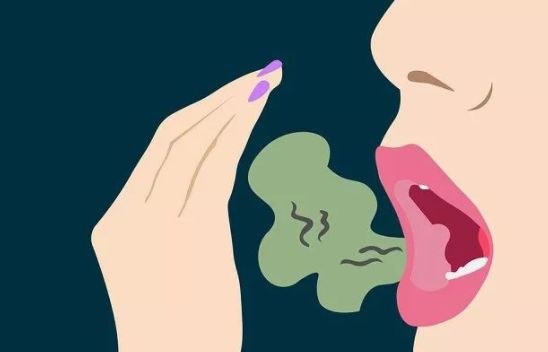Haven’t you done this before? Take a breath into your palm and smell if there is any smell. If the scent is strong, you must be wondering! Brushing my teeth every day, I even have bad breath.
It is essential to know that bad breath is mainly caused by the joint action of food embedded between the teeth and gum disease caused by poor oral health.
Here is a summary of why people still have bad breath after brushing their teeth.
Bad breath caused by inadequate brushing and cleaning
With three meals a day, food residues inevitably remain in the teeth. “If you brush your teeth incorrectly, your mouth cannot be cleaned, and your self-cleaning ability is poor. If there is food residue, bacteria are more likely to grow and breath occurs.”.
Cleansing your pearly whites twice daily, morning and night, especially before bed, is recommended. Try to control the time of brushing your teeth by about 3 minutes each time. Be sure to brush all three tooth surfaces (the teeth’ outer, inner, and occlusal surfaces).
You can choose an appropriate electric toothbrush based on the actual situation, which can achieve good cleaning results. It is especially suitable for older adults and children who are too lazy to brush their teeth manually or have difficulty operating.
Bad breath caused by oral diseases
Most pathological lousy breath comes from the mouth, and tongue coating and periodontal disease are the leading causes of bad breath.
The surface of the tongue coating is covered with filamentous papillae, fungiform papillae, leafy papillae, and contoured papillae. In addition, it forms numerous depressions and bumps on the tongue’s surface, providing a perfect space for bacteria to adhere and grow.
The back of the tongue is the most densely populated area of oral bacteria and the primary source of saliva bacteria. And those food residues on the back of the language become the primary source of oral odor.
The odor produced by tongue coating mainly comes from hydrogen sulfide, and reducing bacteria is the primary method to eliminate bad breath. Scraping the tongue coating can significantly reduce the level of volatile sulfide and maintain it for several hours.
Bad breath caused by irregular diet
“Eating foods containing volatile oils, such as onions, garlic, and the like, can cause the odor to be exhaled from the blood through the lungs, causing temporary bad breath.”.
This can be done by brushing your teeth, using mouthwash, and chewing gum.
Bad breath caused by other diseases
Gastrointestinal diseases, such as gastroenteritis, chronic gastritis, indigestion, and gastric ulcers, can be accompanied by bad breath. For example, the breath of patients with liver failure has a rotten smell, the breath of patients with renal failure has a fishy smell, and the breath of patients with severe diabetes has a rotten apple.
Helicobacter pylori infection can also cause severe bad breath. Research has found Helicobacter pylori in the mouth, which directly produces sulfides, causing bad breath. However, experiments have shown that after radical treatment of Helicobacter pylori, the symptoms of bad breath can be significantly reduced.
Mental factors cause halitosis.
Mental factors, excessive psychological pressure leading to dry mouth, causing oral odor.
Treatment is essential regardless of the cause of bad breath, but prevention is more important!
Pay attention to oral hygiene, brush your teeth in the morning and evening, quit smoking and alcohol, live a regular life, do not stay up late, maintain a combination of work and rest, try to eat less heat-promoting foods, and eat some heat dissipating foods in moderation to protect oral health!

